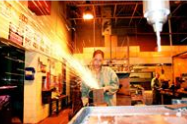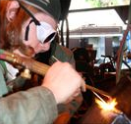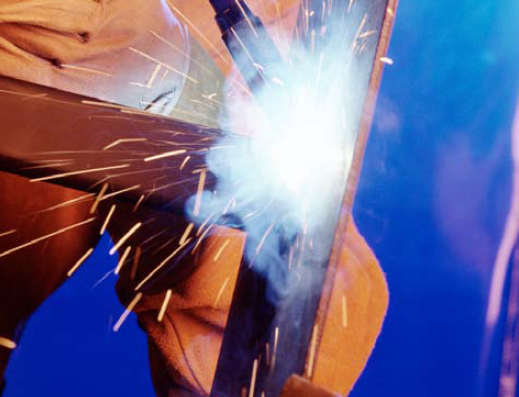-
Welding
The Welding Program at NWCTC-Northern Westmoreland Career and Technical Center is an active EIM
Educational Institution Member with the AWS-American Welding Society. Students enrolled in this program
will learn basic and advanced techniques with all of the primary welding processes accompanied by a strong
emphasis on safety. Our Welding Program routinely turns out champion students in CTSO's-Career and
Technical Student Organizations, such as the AWS and SkillsUSA!
Students have the opportunity to earn industry credentials/certifications to the API, AWS, ASNT, and ASME
standards. Many of our welding students take full advantage of the school's Co-Op, Cooperative Education set-up,
earning an average of $15.00hr while still in high school. A large portion of our students upon graduation go
onto achieve success in welding careers that cover a wide range of the industry.
Possible
Occupations:
• Welder
• Technician
* Boilermaker
* Iron Worker
* Steamfitter
• Sheet Metal Worker
• Pipe Line Welder
* Engineer
* Inspector/NOT
• Instructor
• Business/Shop Owner
* Underwater Welder
* Military Welder
· Download BrochureAcademic
Requirements:
· Strong Technical Math
* Geometry
* Basic Algebra
* English 1,2,3,4
* Science
* Basic Chemistry
* History Curricular
Curricular
Components:
• Safety
* SMAW/Stick Welding
* GMAW/MIG Welding
* GTAW/TIG Welding
* FCAW/Flux-Core Welding
*OFC/Oxyfuel Cutting
* PAC/Plasma Arc Cutting
* Blueprints
* NOT/Nondestructive Testing
* Inspection Techniques
* Welding Symbols
* AWS/SkillsUSA

Fact Check
· The most common and simplest type of welding today is arc welding, which uses electrical currents to create heat and bond metals together, but there are over 100 different processes that a welder can employ!
· The difficulty of the weld is determined by its position-horizonal, vertical, overhead, or 6G (circular, as in large pipes) - and by the type of metals to be fused.
· Welding, soldering, and brazing workers need good eyesight, hand-eye coordination, and manual dexterity, along with strong math, problem-solving, and communication skills, they should be able to concentrate on detailed work for long periods.
· Welding school report that graduates have no trouble finding work, and many welding employers report difficulty finding properly skilled welders. The basic skills of welding are the same access industries so welders can easily shift from one industry to another, depending on where they are needed most.

